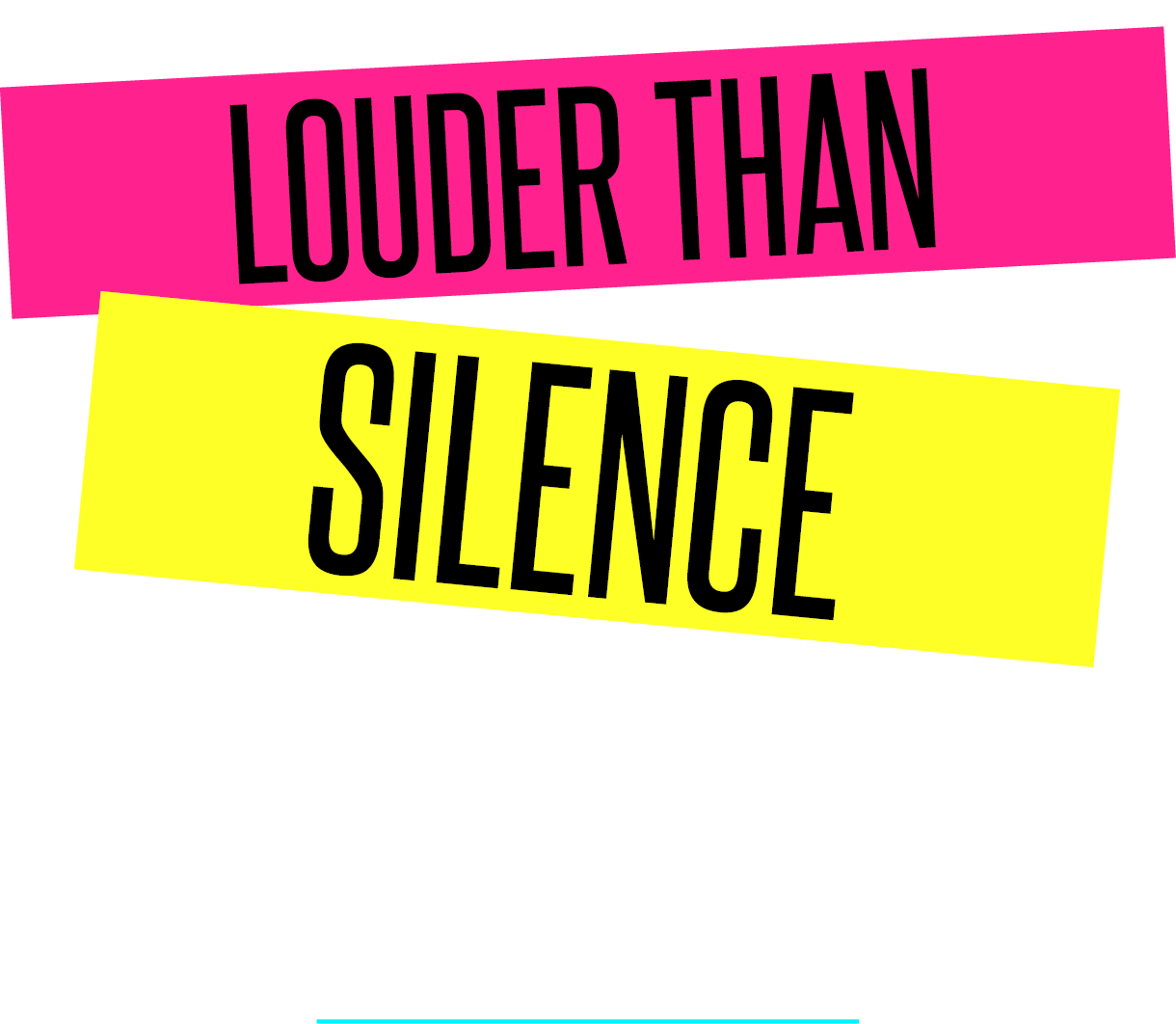

Lori Poland
EndCAN Co-Founder &
Executive Director
Episode 3: Surviving Child Abuse and Aging into Adulthood, Lori Poland’s Story – Part 3
The impact of child abuse and neglect continues to affect the lives of adult survivors as they age, long after the experience or experiences take place in childhood. In this episode, Lori explains the struggles she faced with different milestones in her adulthood as a result of surviving child abuse and neglect, as well as her journey through breaking the cycle of abuse.
Episode Transcript
Transcript of the Louder than Silence Podcast
Episode #3: Surviving Child Abuse and Aging into Adulthood, Lori Poland’s Story – Part 3
Transcribed by Adam Soisson
[Inspirational theme music plays.]
>> Lori: Thank you for joining us. In this podcast, we are real people, talking about real things. Child abuse and neglect: a topic that is all too often left in the shadows of silence, leaving survivors alone, fearful, and oftentimes without a voice. We’re having conversations to become louder than silence. It is here, where we will invite you to join us and be the change needed to end child abuse and neglect.
>> Lori: Hello, my name is Lori Poland and I am the Executive Director for the National Foundation to End Child Abuse and Neglect. Thank you so much for joining our podcast today and being here. We are genuinely happy to have you here, have you listening and have you be a part of the change to end child abuse and neglect. We know that this effort is going to take all of us joining our voices, standing together, and collectively trying to be the change. So I appreciate you, I appreciate you being here and the topic of today is the aging process after abusive experiences. For me, I’m just going to tell you about my own aging process. So I was abused at the age of three, I was kidnapped from my front yard, severely abused and placed in the pit of an outhouse toilet fifteen feet below ground. When my abuser left me there and he himself had been abused as a small child and nobody intervened and helped him. When I was found three and a half days later by birdwatchers I was reunited with my family and the impact that my trauma, my kidnapping had on them, my parents went through their own trauma of having a child taken, my brother went through his own trauma of witnessing a sister being taken at the age of five.
Growing up in that environment, growing up trying to be as normal as possible, after experiencing something like that and us just getting on with life had its ups and downs, for sure. For me, I know that I learned at a very young age that if I took care of other people and made them happy that I was doing my part in not causing more harm because that was my goal. I have known and believed for as long as I can possibly remember that I am the reason why so many people in my life are still to this day suffering and hurting. I also know I’m the reason why so many of them are not and are doing well and are doing good things in their world. But aging through that process was challenging. Just learning the tools of saying yes and putting other people and their needs before me have been challenging in and of themselves. I could say that as a sexual abuse survivor, my first intimate experience was an interesting one in and of itself because I believed that being intimate with somebody meant that they were supposed to love me and we were going to be together forever. We were together for five years, that was a really long time when you’re a teenager and high school sweethearts. But you know my needs and my priority were never put first and I’ve oftentimes found myself in relationship with people where I’m putting their needs first and they’re oftentimes people who are hurting and suffering and the last thing I want to do is cause them more harm so I tend to spend my time taking care of them, trying to let them know that they matter and that they belong and that they’re worthy.
All the things that I have also needed and yet don’t often get when in relationship with other people so that’s been trying and here I am 37 years later still trying to fight that fight and manage those cycles and learn to recognize them and truly attempt to break the cycles because that’s not a way I want to model to my children and it’s certainly not a way I want to be in relationship. So I can also say that another huge aging experience for me with being a sexual abuse survivor was becoming a mother. With my oldest, she is now 13 and just such a beautiful soul but I remember when I got pregnant I was so excited. I mean we were trying for a baby and we had been married and you know it was like the next thing. It was so exciting and then I realized, “oh my goodness, I am bringing another human into this world that I might not be able to protect because I know my parents weren’t the reason I got hurt, that they were doing exactly what parents do and doing exactly what they were capable of doing. They were doing the best that they could given the resources and the abilities that they had just like we are all doing as parents.” But I was so scared when I got pregnant with my daughter and I remember having really, really bad prenatal depression and so I found a therapist, I opened the yellow pages and found a therapist near me and went and saw him immediately and I actually saw him for seven years. He really helped me work through a lot of my trauma history. When my daughter was born my postpartum depression got really bad and needed to be medically treated. I was so afraid of failing her that I didn’t want to connect with her. I was so afraid that I was going to let her down and I wasn’t going to be able to keep her safe so I thought better not to connect and feel responsible for that than to connect and be responsible for it and fail. So that was interesting and thank goodness for that therapist because he saved my life, and he saved my connection with just the most beautiful soul of a thirteen year old I’ve ever known. She is so good.
Then I had another daughter, a year and a half later, 20 months later, and she came out into this world screaming and ready to live, and I did not have postpartum with her and I was so happy about that. But with both girls, when they turned three, right at the exact age that I was, at 36 months and two weeks, or three weeks excuse me, I took each of them individually, when they turned that age, I went to the mountains with them and took them on a hike and really packed a lunch and just was very intentional about that ritual of recognizing that my experience and my kidnapping was probably going to trigger me when they turned that exact age. Then I had my little boy and I did not think that that would happen with him, I did not at all think I would get triggered, because he was a boy and I was a girl, I, you know, my offender was a boy and you know whatever. Then when my son turned three years and three weeks, 36 months and three weeks, not that I counted months that way, I wasn’t that parents [laughs]. But nonetheless I did specifically with all three kids because of this and interestingly with my son I hit another bout of depression and I think, I know that it was mostly because I’ve always had so much empathy for my kidnapper and I knew that he was a three year old little boy crying at his next door neighbor’s house begging for help because they had shared that with people who were on my case and nobody did anything and I just felt so bad for that, and that bystander guilt is profound. But when my little boy was three I really, really struggled because he was also so helpless and he needed protection and he needed adults, he needed somebody to keep him safe just like my kidnapper did. Man, I can only imagine that if somebody had helped him what my life would be like and how different I would be. I’d probably be in finance or sales or something, I don’t know [laughs]. But I do know that the aging experience and becoming a mother was awfully trying for me and that no matter how hard I tried, when my kids were verbal we used the anatomically correct body parts, we talked about body safety.
I’ve never, ever shied away from telling my children about stranger danger. I’ve shared my story with my children, not in great detail because I’ve kept it very age-appropriate. But as they’ve aged and they’ve asked questions I talk to them and I talk honestly and openly so that they know my story and where they come from. But when my daughter, my middle daughter was three and a half she was abused by another child who was five and a half years older than her and we learned that because my daughter then tried to repeat that behavior the very next day. My husband at the time responded out of so much fear and I too was so fearful that I had been working specifically with child abuse for so long and I kind of went straight into work mode and I knew that my daughter was going to be okay because she had me as a mom and I was going to do everything in my power forever, A) to talk openly with her, B) to never rob her of her own experience, that it was her experience, and C) to let her know that any time throughout her life after that, that she was struggling, that she was going to be okay because that was not going to be the one and only impact. Unfortunately, when we are abused as small children our brain learns something that no child really ever ought to learn and that is survival. In the book The Road Less Traveled, he talks about how from the ages of six weeks until 15 the body’s biggest fear is abandonment. We do everything in our power not to experience abandonment. It’s our job as adults, no matter whether it’s your child or somebody else’s child, it’s our job as adults to help children feel safe and secure. If you are only in their presence for a brief moment, recognizing them, acknowledging them, letting them know that they’re seen, letting them know that they’re going to be safe and okay. No matter how old they get we still need that. I still need that as a 39 year old adult woman. I still need that. So I knew that my daughter was going to be okay because of those beliefs, because I know this information, I know that this will never end. Her little brain experienced something that no child’s little brain should ever experience and I will do everything that I can to help that brain feel safe and secure and nurtured for the rest of her existence, or the rest of mine.
So that’s my goal. But my worry wasn’t as much about my daughter, because I knew she was in good hands as much as it was about the other child that had caused her harm and wanting to make sure that that child felt protected and safe and heard and secure. I tried with all my might to do that and it caused a lot of harm. I was ostracized and told to mind my own business and told that she was fine and that kids do that. I was told all the things that we tell everybody when we feel shameful and scared. I’ve done everything that I could and I lost an awful lot through that process. But I did everything that I could to let that little girl know that I saw her and I heard her and I tried to communicate to her community that she was in need. So that’s been one of the hardest parts about being an adult is advocating for children who can’t advocate for themselves because if we’re growing up in a screaming environment we think that screaming is normal. If we’re growing up in a sexually abusive environment we think that sexual abuse is normal even though innately we know that it’s not. Even though innately we know and we see, our teachers don’t oftentimes scream at us. Our friend’s parents don’t oftentimes scream at us. Those, you know, we see that there’s another way but we see that it’s our normal so that’s the power of resiliency, we’re resilient to that. We lean into that being an acceptable thing even when it’s not acceptable.
That’s been the hardest part for me , I would say, is trying to give voice to small children and it’s also been the most beautiful part for me. As a therapist, in my work as a mom, in my work as a pseudo-mom to all of the little children in my life that I just love and adore. Every time I’m around kids I just connect with them because I want them to feel connected. I see that as my job, I see that as all of our jobs and I do that from humility because they teach me way more than I’m teaching them and kindness and authenticity so that they can see that being humble and raw is not a bad thing and that they matter. That’s been my journey, my journey to finding me has been “do unto others as I want done unto me.” Treating other people kindly, and lovingly. I love so hard. If you fall into my love circle, that’s it for you. I just will love you so hard no matter how old or young you are I will love you and I will always make you feel like you matter and that’s kind of my mission and passion in this world. It’s why I started EndCAN, it’s why I truly without question believe that we can end child abuse and neglect together. I need a lot more voices than mine because my voice is just one. One of tens of millions and so join me today in being a part of the change, being Louder than Silence and ending child abuse and neglect. Thanks so much for joining, thanks so much for listening. Have a great day.
[Inspirational theme music plays.]
>>Lori: I want to thank each of you again for joining us today and listening in. If you or someone you know is being abused, please call 1-800-4-A-CHILD. To learn more about EndCAN, visit www.endcan.org or find us on all social media platforms. Join us in being Louder than Silence and being a part of the change. Please leave a comment, like our podcast, or share with your friends. The more the word spreads, the more of a collective impact we can have. If you have a question or you know someone who would want to be a guest on our podcast, please contact bethechange@endcan.org. Thanks again, and have a great day.
<END>


